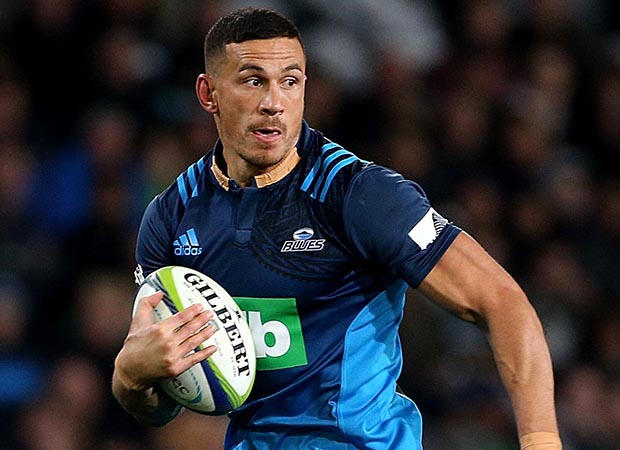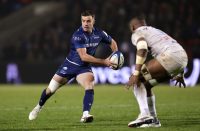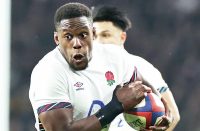 Sonny Bill Williams has a habit of cornering the headlines when it comes to Antipodean rugby – whether Union or League – and this week was no different as he made the news for covering up a bank sponsor’s logo on his Auckland Blues shirt before his opening match for the Super franchise.
Sonny Bill Williams has a habit of cornering the headlines when it comes to Antipodean rugby – whether Union or League – and this week was no different as he made the news for covering up a bank sponsor’s logo on his Auckland Blues shirt before his opening match for the Super franchise.
The charismatic All Blacks centre has appeared to be happy to hop between the codes to maximise on his earning power during his career, and he is currently back as one of New Zealand Rugby Union‘s top earners in preparation for the Lions tour.
Williams, who is a devout Muslim, also has no problems with proclaiming his faith. After taping over the bank logo it emerged that he had invoked a “conscientious objection” clause in his NZRU contract.
Williams subsequently released a statement saying that he had “nothing personal” against the banks that sponsor New Zealand rugby, and then offered this explanation for his actions.
“My objection to wearing clothing that markets banks, alcohol and gambling companies is central to my religious beliefs, and it is important to me to have been granted this exemption. As I learn more, and develop a deeper understanding of my faith, I am no longer comfortable doing things I used to do.
“So while a logo on a jersey might seem like a small thing to some people, it is important to me that I do the right thing with regards to my faith and hope that people respect that.”
It was not clear whether Williams had decided to forego the percentage of his NZRU contract that derives from the sponsorship of the bank in question. However, what was clear is that the strong advertisement for Williams’ religious beliefs cost him nothing, and everything appeared rosy when his paymasters at the NZRU/Blues said they respected his right to conscientious objection, which they considered to be genuine.
Nevertheless, there could be a catch in the conscientious objection script which tests Williams’ convictions to the full.
While Williams was allowed to tape over the BNZ logo on the Blues shirt – and from this weekend will wear a bespoke shirt featuring the logo of a children’s support service sponsored by the bank instead – the international specialist investment bank, Investec, which is a Super Rugby sponsor, was less accommodating.
While it agreed to one of its two logos on the Blues shirt being covered up by Williams, it refused to do so for the competition logo which is compulsory on the jerseys of all New Zealand’s Super Rugby teams.
Williams could also find himself heavily conflicted should All Blacks coach Steve Hansen decide to pick him – as expected – to play against the Lions this summer. This is because the All Blacks principal sponsorship, which is a five-year deal said to be worth £45 million to the NZRU, is with the global insurance giant AIG.
One of Williams’ objections as a practising Muslim is to companies that charge interest on loans, which is something that insurance companies like AIG have in common with banks. Williams has not yet made it clear whether this will rule him out of playing in the series against the Lions, because he has little or no chance of getting an exemption to tape over the large lettering of the insurance company on the front of the All Black jersey.
The harsh reality of professional sport is that sponsors like Investec and AIG provide much of the finance that enables top rugby stars like Williams to earn lucrative salaries.
Special exemptions from carrying sponsors’ logos diminish the value of their sponsorship, especially when it is Rugby Union’s values as an all-for-one, one-for-all team sport that has attracted them.
Religious freedom and conscientious objection are human rights which must be respected – but they also have to be handled with care by those making the objections. It is fine to proclaim your religious convictions, but it is equally important to make sure that when you do so you are consistent in upholding what you believe.
In Williams’ case he seems happy to protest against financial institutions up to a point, but to compromise when it could hit him deep in the purse.
It will be interesting to see if he plays against the Lions – because if he does, and does so wearing the logos of financial institutions, he could be accused of blatant double standards.























